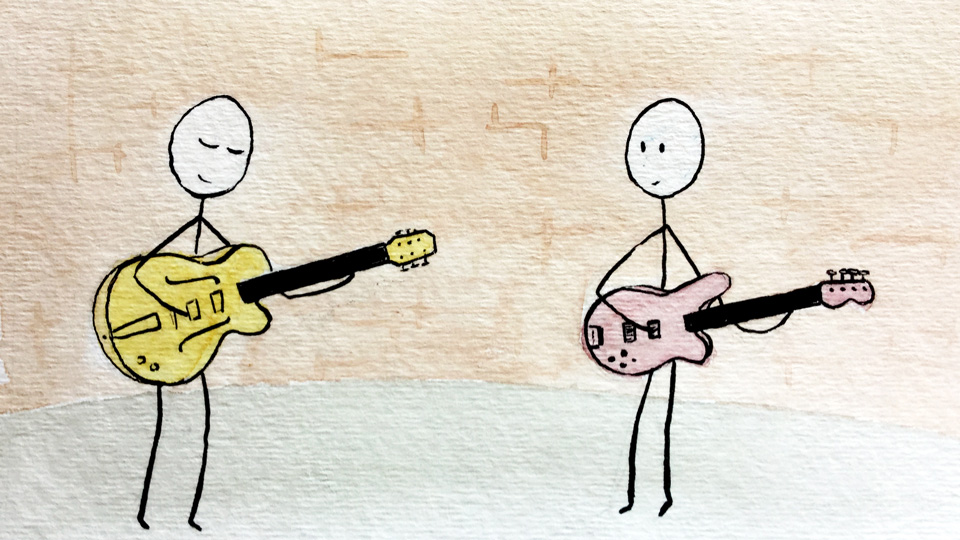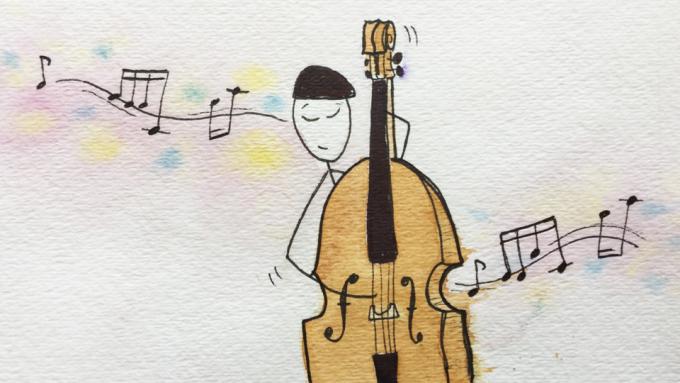Hi David,
I have your book and I am enjoying it immensely. I really like your approach it makes a lot of sense.
A musical problem: I play in a blues band and quite often I need to compose bass riffs spontaneously to support the guitarist. When he is soloing I play walking bass lines easily enough; however when he is playing the head I tend to copy him. I am trying to move away from this to play less notes and support his head with an independent part. How can I get better at doing this?
Thanks for any thoughts on this issue,
Jonathan
David's response:
Hi Jonathan,
I think the first thing that young musicians need to realize about creativity is that it's not something that you can always turn on and turn off like a water faucet. Depending on your personality, you might find that your best ideas come to you in the heat of the moment on the bandstand, or in the quiet of the practice studio where you have lots of time for reflection and experimentation.
There are several factors involved:
1) Your comfort and mastery on the bass. I mention this first because it's the one that you can most directly control, and it's the one that we are working on directly in your IFR practice. You still won't necessarily be able to enjoy improvising in every possible musical situation (I'll get to that in a moment), but obviously the more you study and play your bass, the more easily you'll be able to think of bass riffs that fit nicely with everything else that's going on around you, and the more easily you'll play them.
2) Your own creative inspiration in the moment. This is more elusive. You can't simply will yourself into having a brilliant idea on the bass. No matter how creative you are, there will be times when you just don't have a clear inspiration about what you should add to a piece of music. But then other times you will have very clear and brilliant ideas. This is the just the ebb and flow of human energy. But you can always do something, and the more you improve at point number 1 above, the easier it will be for you to do something supportive no matter what's going on.
3) Your compatibility with the other musicians. Is the style of music really the best musical environment for your own improvisations? Does it allow you the space you need, and does it inspire you with beautiful sounds? You know from your personal life that some groups of friends bring out the best in you, and the conversation just seems to flow effortlessly. The same thing happens in music. Sometimes it's the musical format itself that is preventing you from getting into the creative flow. So the solution is to change the musical arrangements in a way that produces a more ideal situation for improvising.
The most important thing is to not lose sight of the magic in the creative process. Composing a beautiful bass riff is every bit as artistic as making a great painting or a writing a poem. So give yourself the time and space to discover your own creative process. Stay positive and keep searching for that elusive riff!
David

